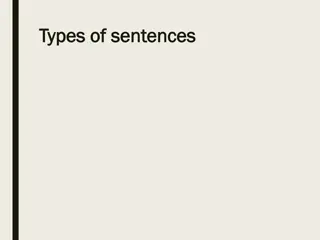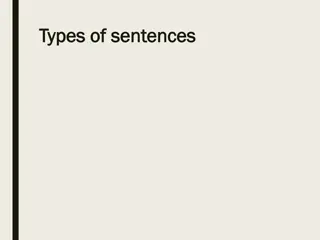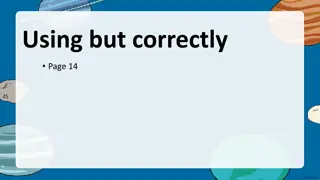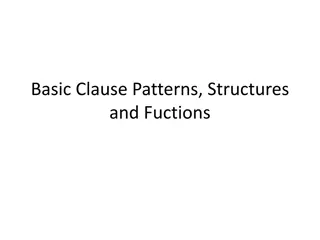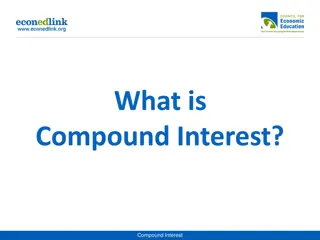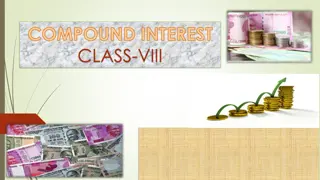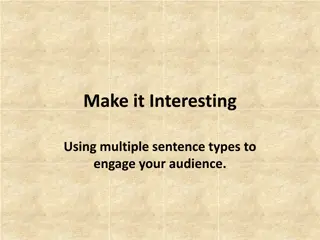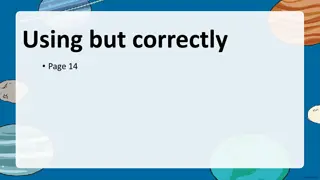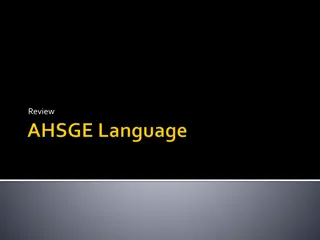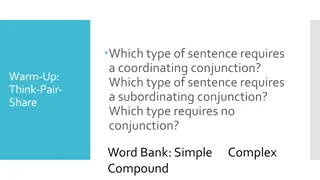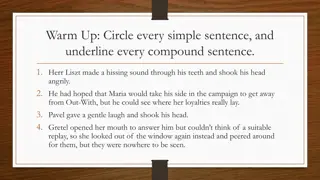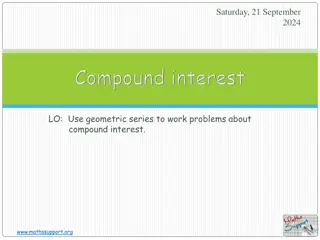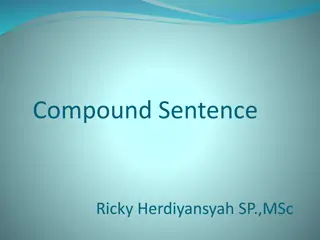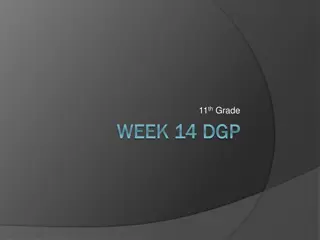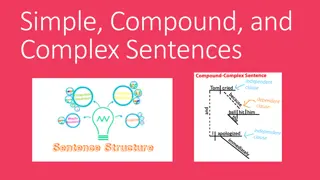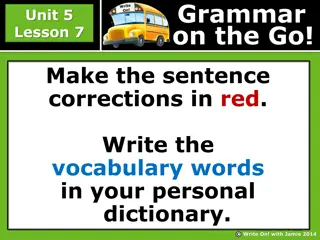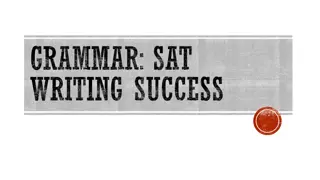Sentence Structures: Simple, Compound, Complex, and Compound-Complex
Learn about the different types of sentence structures - simple, compound, complex, and compound-complex - through examples and definitions. Understand the components of clauses and sentences, including independent and dependent clauses, to enhance your understanding of English grammar.
Download Presentation

Please find below an Image/Link to download the presentation.
The content on the website is provided AS IS for your information and personal use only. It may not be sold, licensed, or shared on other websites without obtaining consent from the author. Download presentation by click this link. If you encounter any issues during the download, it is possible that the publisher has removed the file from their server.
E N D
Presentation Transcript
SENTENCES Classified by Structure Simple, Compound, Complex, and Compound-Complex According to English Composition and Grammar, Benchmark Edition and Analyzing English Grammar By Klammer, Schulz and Volpe
Some Definitions 1. Clause--A sequence of words containing a subject and a predicate/verb. It may be dependent or independent. 2. Sentence A word or group of words that usually consists of at least one subject and verb/predicate. 3. Dependent Clause A clause that is unable to stand independently as a sentence. 4. Independent Clause A clause able to stand alone as a sentence.
SIMPLE SENTENCES A SIMPLE SENTENCE IS A SENTENCE WITH ONE INDEPENDENT CLAUSE AND NO SUBORDINATE CLAUSE. WE LIVE IN FAYETTEVILLE. IN THIS SENTENCE, WE IS THE SUBJECT AND LIVE IS THE VERB
COMPOUND SENTENCE
Complex Sentences A Complex sentence is a sentence containing one independent clause and at least one subordinate clause. Examples: 1. As evening descended, the storm reached its climax. In this sentence, As evening descended is the dependent clause because it cannot stand on its own. It is dependent on the second part of the sentence, the storm reached its climax, for meaning. 2. Javen sang old songs, while he prepared for his boat launch. In this sentence, Javen sang old songs is the independent clause because it stands alone. It has meaning. The clause while he prepared for his boat launch is a dependent clause. It depends on the first part of the sentence for meaning. 3. Because Thomas forgot his wallet, he couldn t order dinner out. (When the dependent clause is first, a comma is required). 4. Thomas couldn t order dinner out because he had forgotten his wallet. (But when the dependent clause is second, NO comma is needed).
Compound Compound- -Complex Sentences Complex Sentences This type of sentence contains two or more independent clauses and at least one subordinate (or dependent) clause. The clause beginning with because , is subordinate or dependent for meaning on those first two clauses. We won the game, but my uniform was muddy because it rained the entire time. The underlined clauses are both independent they can stand alone and make sense.
Make your OWN Sentence Examples 1. Simple 2. Compound 3. Complex 4. Compound Complex
A Different A Different Type of Type of Sentence Sentence Now that you have reviewed simple, compound, complex and compound- complex sentences, it is time to review Sentences classified by PURPOSE, rather than sentences classified by structure.
SENTENCES CLASSIFIED BY PURPOSE Sentences may be classified according to their purpose, and there are four kinds of sentences: 1. Declarative ends with a period (.) 2. Imperative may end with a period OR an exclamation mark (!) 3. Interrogative ends with a question mark (?) 4. Exclamatory ends with an exclamation mark (!)
Declarativeends with a period. We need more flowers in our garden. SENTENCES CLASSIFIED BY PURPOSE: Imperative may end with a period OR an exclamation mark. Walk this way. Walk this way! Interrogative ends with a question mark. Did she walk the correct way? Exclamatory ends with an exclamation mark. Get out!
Important Note 1. All these sentences (declarative, imperative, and interrogative) may be spoken or written in such a way that it is really an exclamatory sentence and should end in an exclamation point or mark. You did a good job. You did a good job! Please sit here. Please sit here! Are you kidding me? Are you kidding me! 2. Academic Writing usually uses ONLY declarative sentences.


